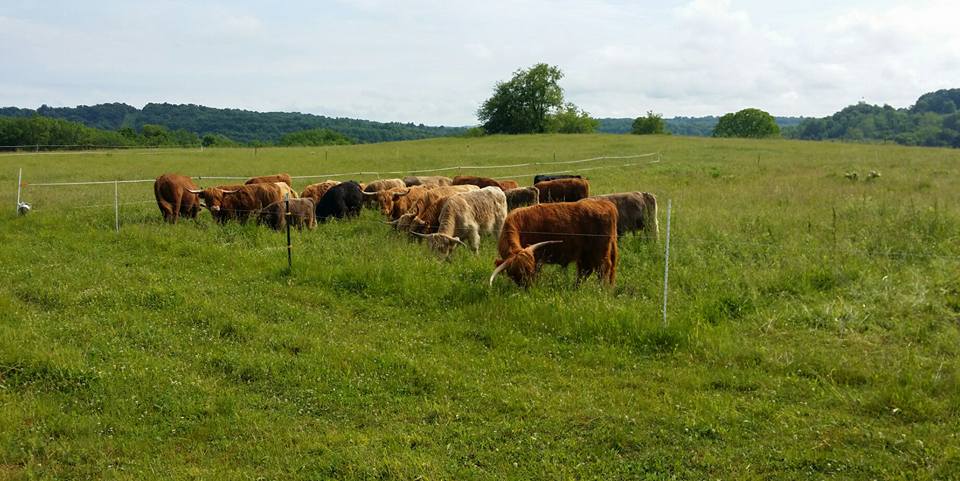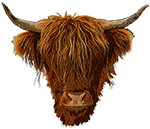Sustainable Farming
 Mob grazing at work. These guys mow a strip of grass each day leaving enough behind for efficient regrowth and applying a nice coat of natural fertilizer. Moving them daily helps minimize mud, flies and disease while keeping us from having to use expensive equipment and fossil fuels.
Mob grazing at work. These guys mow a strip of grass each day leaving enough behind for efficient regrowth and applying a nice coat of natural fertilizer. Moving them daily helps minimize mud, flies and disease while keeping us from having to use expensive equipment and fossil fuels.
Sustainable agriculture is a way of raising food that is healthy for consumers and animals, does not harm the environment, is humane for workers, respects animals, provides a fair wage to the farmer, and supports and enhances rural communities. It's also beneficial to the cattle, providing them with the most nutritious grass.
Characteristics include:
- Conservation and preservation. What is taken out of the environment is put back in, so land and resources such as water, soil and air can be replenished and are available to future generations. The waste from sustainable farming stays within the farm’s ecosystem and cannot cause buildup or pollution. In addition, sustainable agriculture seeks to minimize transportation costs and fossil fuel use, and is as locally-based as possible.
- Biodiversity. Farms raise different types of plants and animals, which are rotated around the fields to enrich the soil and help prevent disease and pest outbreaks. Chemical pesticides are used minimally and only when necessary; many sustainable farms do not use any form of chemicals.
- Animal welfare. Animals are treated humanely and with respect, and are well cared for. They are permitted to carry out their natural behaviors, such as grazing, rooting or pecking, and are fed a natural diet appropriate for their species.
- Economically viable. Farmers are paid a fair wage and are not dependent on subsidies from the government. Sustainable farmers help strengthen rural communities.
- Socially just. Workers are treated fairly and paid competitive wages and benefits. They work in a safe environment and are offered proper living conditions and food.
Conversely, conventional agriculture describes any farming not dedicated to alternative methods. Fundamentally, it is the kind of farming which dominated the 20th century and which accounts for most farming today. In conventional farming, chemical plant protectants, chemical fertilizers, and intensive mass animal farming are common. IPM, or Integrated Pest Management, belongs to conventional farming.
The vast majority of beef consumed today is produced via conventional methods, largely because it is the most economical way to get beef from the producer to the consumer. It is not, however, the most fair to all involved, nor the most humane, and especially does not result in the healthiest beef available.
We offer Sustainable Agriculture Farm Tours at Pittsburgher Highland Farm. Click here for more info.
JOIN OUR EMAIL LIST

